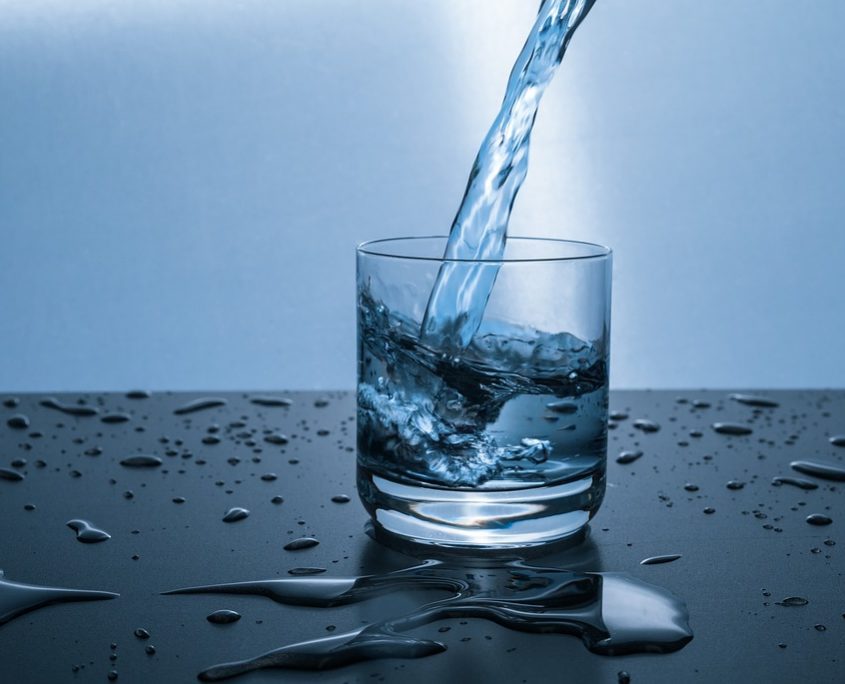Did you know that dehydration and anxiety are connected? When you are dehydrated, your body becomes anxious as a way to try and preserve energy. This is because when you are dehydrated, your body has to work harder to perform basic functions. In this blog post, we will discuss the connection between dehydration and anxiety, and how you can prevent both from happening.
Contents
Defining Anxiety
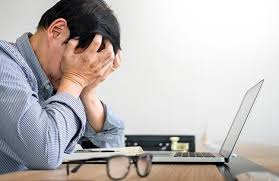 Anxiety is defined as “a feeling of worry, nervousness, or unease about something with an uncertain outcome.” Everyone experiences anxiety at some point in their lives. It is a normal and adaptive emotion that helps us to cope with stressors. However, when anxiety becomes excessive and persistent, it can interfere with our daily lives and cause distress.
Anxiety is defined as “a feeling of worry, nervousness, or unease about something with an uncertain outcome.” Everyone experiences anxiety at some point in their lives. It is a normal and adaptive emotion that helps us to cope with stressors. However, when anxiety becomes excessive and persistent, it can interfere with our daily lives and cause distress.
There are different types of anxiety disorders, each with its own symptoms. Some common symptoms of anxiety include:
- Restlessness or feeling on edge
- Fatigue
- Difficulty concentrating
- Irritability
- Muscle tension
- Sleep problems
These are just a few of the symptoms that someone with anxiety may experience. Now, let’s take a look at how dehydration can contribute to anxiety.
Connection Between Dehydration and Anxiety
The connection between dehydration with anxiety is not a new one. A study from 2013 found that even mild dehydration can cause increased anxiety and tension. Dehydration causes the body to release hormones like adrenaline and cortisol, which are stress hormones. These hormones can lead to feelings of anxiety, irritability, and jitteriness.
Dehydration can cause anxiety because of the way it affects our body and brain. When we are dehydrated, our body is not able to function properly. This can lead to increased levels of stress and anxiety. Dehydration can also cause headaches, which can further contribute to feelings of anxiety.
In addition, dehydration can cause electrolyte imbalances. This can lead to symptoms such as dizziness, lightheadedness, and fatigue – all of which can worsen anxiety symptoms.
When you are dehydrated, your blood pressure and heart rate can increase, which can make you feel more anxious. In fact, dehydration is one of the most common causes of anxiety attacks.
Overall, the connection between dehydration and anxiety is very clear. Dehydration can cause anxiety, and anxiety can worsen the effects of dehydration. If you are feeling anxious, it is important to drink plenty of fluids and stay hydrated. However, if your conditions are more serious, it is always best to consult with a doctor.
Signs Of Dehydration
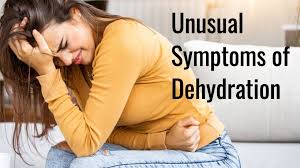 There are many signs that you may be dehydrated. These include:
There are many signs that you may be dehydrated. These include:
- dry mouth
- irritability
- thirst
- skin changes
- headache
- dizziness
- tiredness
- passing small amounts of urine than usual days
- dark yellow urine
- constipation
- higher blood pressure
These are some common signs to watch out for. But if you are experiencing anxiety or panic attacks, it is important to see a doctor to rule out other potential causes. Moreover, some signs that are common in children include:
- fussiness
- lethargy
- crying without tears
So, anxiety is caused by different things in different people. But, dehydration is a possible cause that is often overlooked. In fact, in seasonally dry climates, such as the southwestern United States, dehydration is a common cause of anxiety and panic attacks.
There are times that you may not be able to prevent dehydration, such as during exercise or when you are ill. But still, you should drink plenty of fluids and avoid diuretics, such as coffee and alcohol. And, if you are experiencing anxiety or panic attacks, then consult a mental health professional soon.
How To Identify How Much Water To Drink?
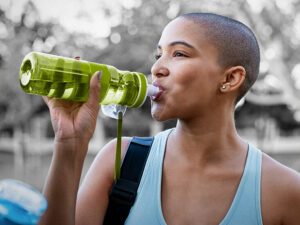 It is often difficult to tell how much water your body needs. Because our bodies are made up mostly of water, it is important to stay hydrated in order to maintain our health and well-being.
It is often difficult to tell how much water your body needs. Because our bodies are made up mostly of water, it is important to stay hydrated in order to maintain our health and well-being.
The recommended daily intake of water is eight glasses per day. But this may vary depending on your activity level, age, weight, and health status. In fact, people have different water needs, so it is important to listen to your body and drink when you are thirsty.
Dehydration can cause a number of health problems, including anxiety. When our bodies are dehydrated, we may experience symptoms such as headache, dizziness, dry mouth, increased heart rate, and lack of energy. These symptoms can lead to anxiety and panic.
The water intake should discuss with a professional who can properly analyze the body’s needs. Moreover, studies have suggested water with lemon can help reduce anxiety. You should identify and pay attention to the early signs of dehydration in order to avoid anxiety.
The studies by nutrition and dieticians have suggested that women should drink 9 glasses of water on a regular basis. And, for men, the recommended intake is 12.5 glasses. However, you should require a nutritionist or dietician for proper guidance.
Tips To Stay Hydrated And Reduce Anxiety
Dehydration can cause anxiety, and anxiety can cause dehydration. It’s a never-ending cycle that can be difficult to break out of. But, there are some things you can do to stay hydrated and reduce anxiety. Here are a few tips:
Keep water with you
It is really important to keep water with you at all times. Whenever you feel thirsty, drink some water. If you’re going to be in a situation where you know you’ll be anxious, such as a job interview or public speaking event, bring water with you. And take small sips throughout the event. You can do this through a straw to help reduce the chance of spilling.
Drink water before bed
 Another good tip is to drink water before bed. This will help you stay hydrated throughout the night. And, if you wake up in the middle of the night, drink some water then too. Before bed, you can also put a glass of water on your bedside table so you have it right there when you wake up. Because we all know how difficult it is to get out of bed in the morning!
Another good tip is to drink water before bed. This will help you stay hydrated throughout the night. And, if you wake up in the middle of the night, drink some water then too. Before bed, you can also put a glass of water on your bedside table so you have it right there when you wake up. Because we all know how difficult it is to get out of bed in the morning!
Drink herbal tea
Herbal tea can be a great way to stay hydrated and reduce anxiety. Chamomile tea, in particular, has been shown to help reduce anxiety. And there are many other types of herbal teas that can help with anxiety as well. Just make sure to avoid caffeine, as it can make anxiety worse.
Avoid sugary drinks
Sugary drinks can actually cause dehydration. So, it’s best to avoid them if you’re trying to stay hydrated and reduce anxiety. Instead, stick to water and herbal teas. It is believed that sugary drinks are one of the reasons why anxiety is on the rise. So, it’s best to avoid them altogether.
Eat water-rich fruits and vegetables
This is a great way to stay hydrated and reduce anxiety. Water-rich fruits and vegetables such as watermelon, cucumber, and tomatoes can help you stay hydrated. And they’re also packed with nutrients that can help reduce anxiety. High water content fruits and vegetables are highly preferred because only water may be unable to keep you hydrated for long.
Set alarms
Sometimes, it’s helpful to set alarms to remind you to drink water. If you know you’re going to be busy and might forget to drink water, set an alarm on your phone or watch. Or, if you have a smart home assistant, you can ask them to remind you to drink water at certain intervals throughout the day. In fact, this is a great way to stay hydrated and reduce anxiety.
Monitor your urine
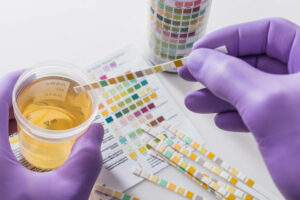 This might sound gross, but it’s actually a good way to know if you’re staying hydrated. If your urine is clear or light yellow, then you’re doing well. But, if it’s dark yellow or brown, then you need to drink more water. This is because dark urine means your body is trying to hold on to water, which can lead to dehydration. More often, people forget to monitor their urine color which can result in dehydration.
This might sound gross, but it’s actually a good way to know if you’re staying hydrated. If your urine is clear or light yellow, then you’re doing well. But, if it’s dark yellow or brown, then you need to drink more water. This is because dark urine means your body is trying to hold on to water, which can lead to dehydration. More often, people forget to monitor their urine color which can result in dehydration.
Anxiety can be a difficult thing to deal with. But, it is possible to stay hydrated and reduce anxiety. Just follow these simple tips and you’ll be on your way to reducing anxiety and staying hydrated.
Conclusion
To conclude, dehydration and anxiety are undeniably connected. When you’re anxious, your body goes into fight-or-flight mode, which can lead to increased urination and sweating. This then causes dehydration, which in turn amplifies anxiety symptoms. It’s a vicious cycle that can be difficult to break out of.
But by being mindful of your fluid intake, especially when you’re feeling anxious, you can help lessen the severity of your symptoms and prevent dehydration-induced anxiety altogether. So next time you’re feeling stressed, reach for a glass of water instead of a cup of coffee. Your body—and mind—will thank you for it.
For more information, please contact MantraCare. Anxiety is a common mental health condition characterized by persistent feelings of worry, fear, and apprehension. If you have any queries regarding Online Anxiety Counseling experienced therapists at MantraCare can help: Book a trial Anxiety therapy session
